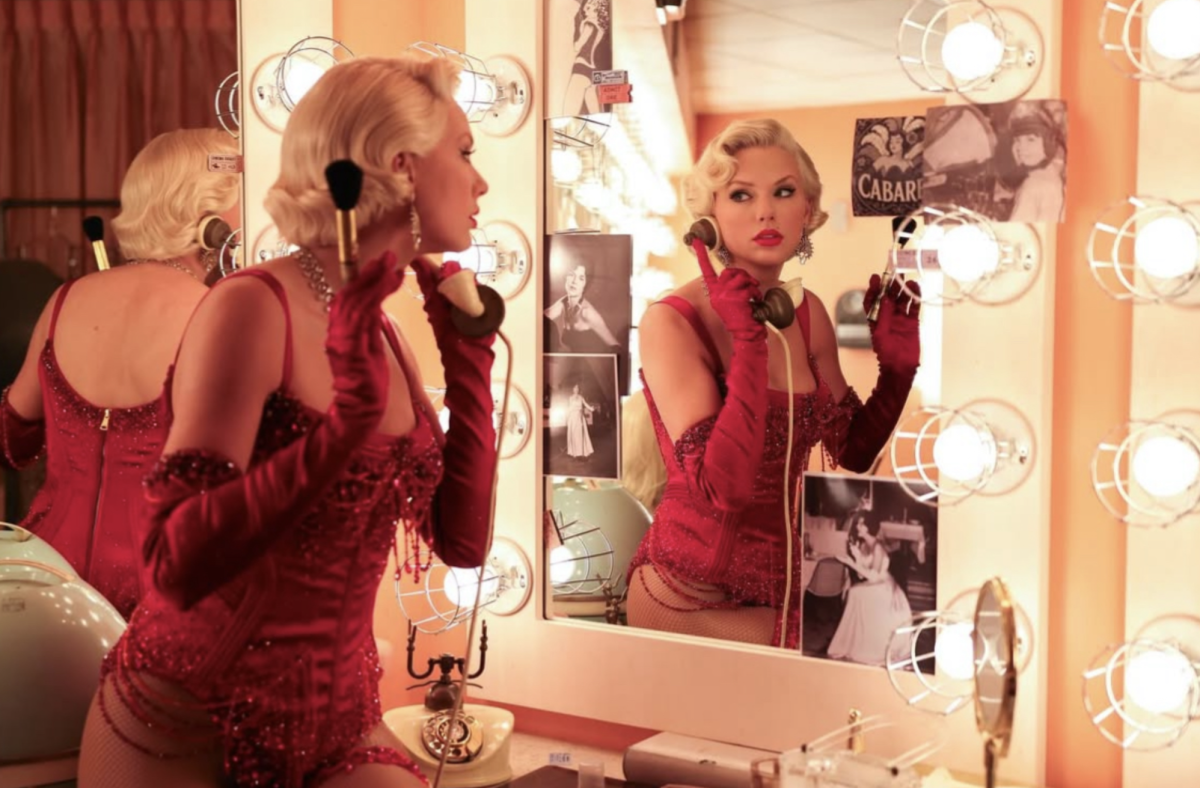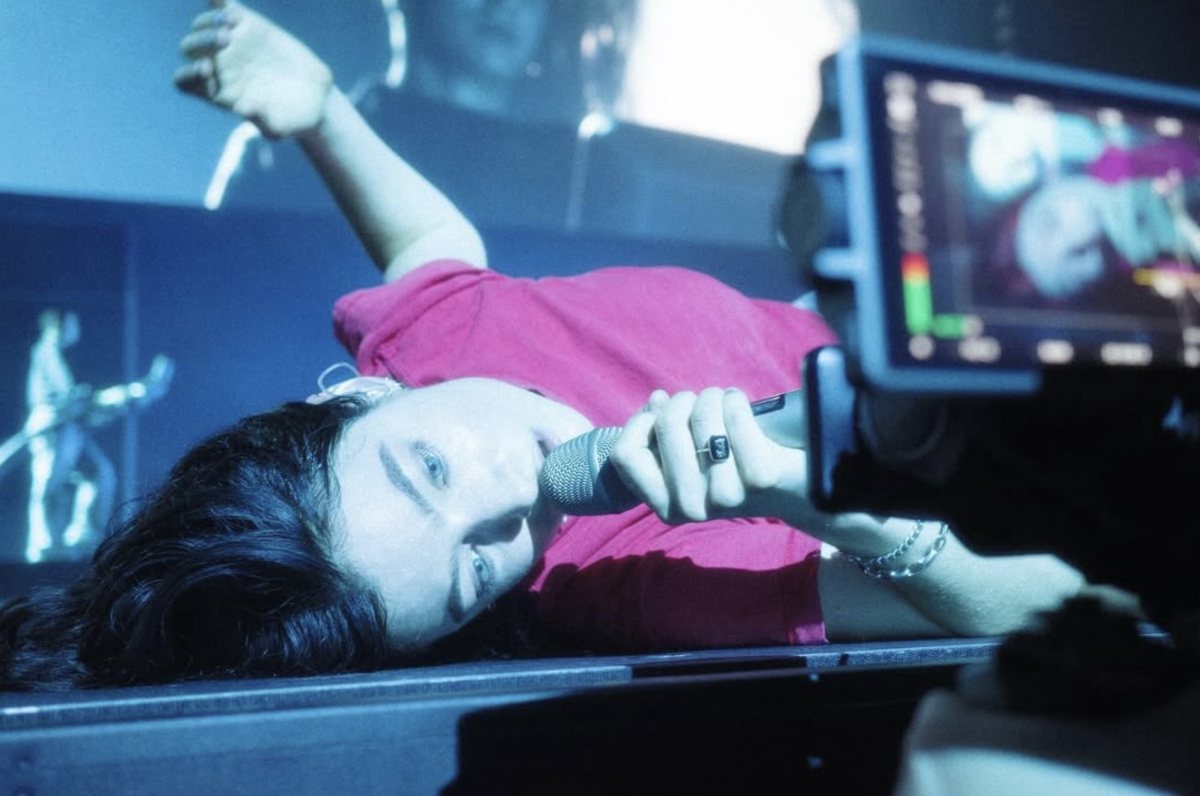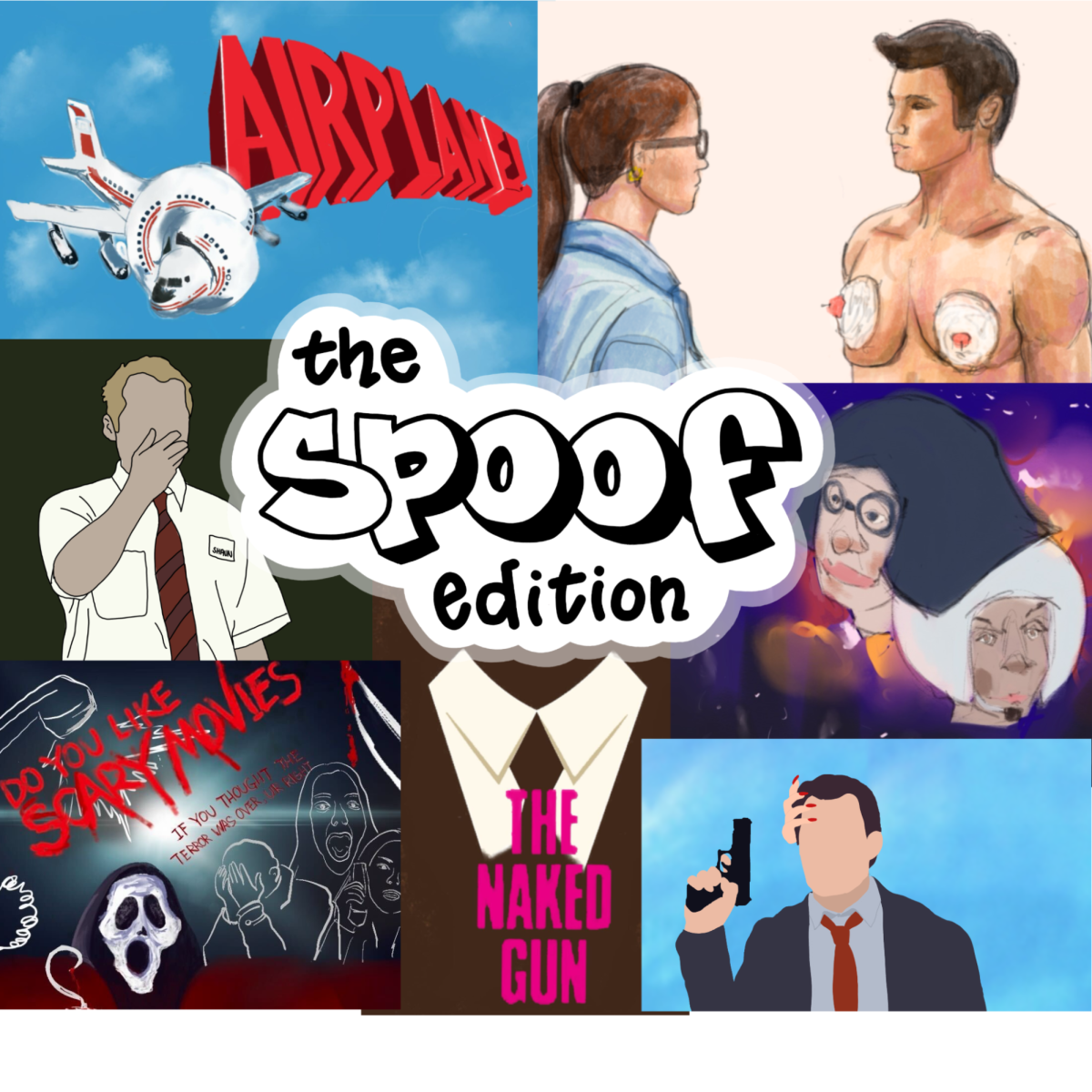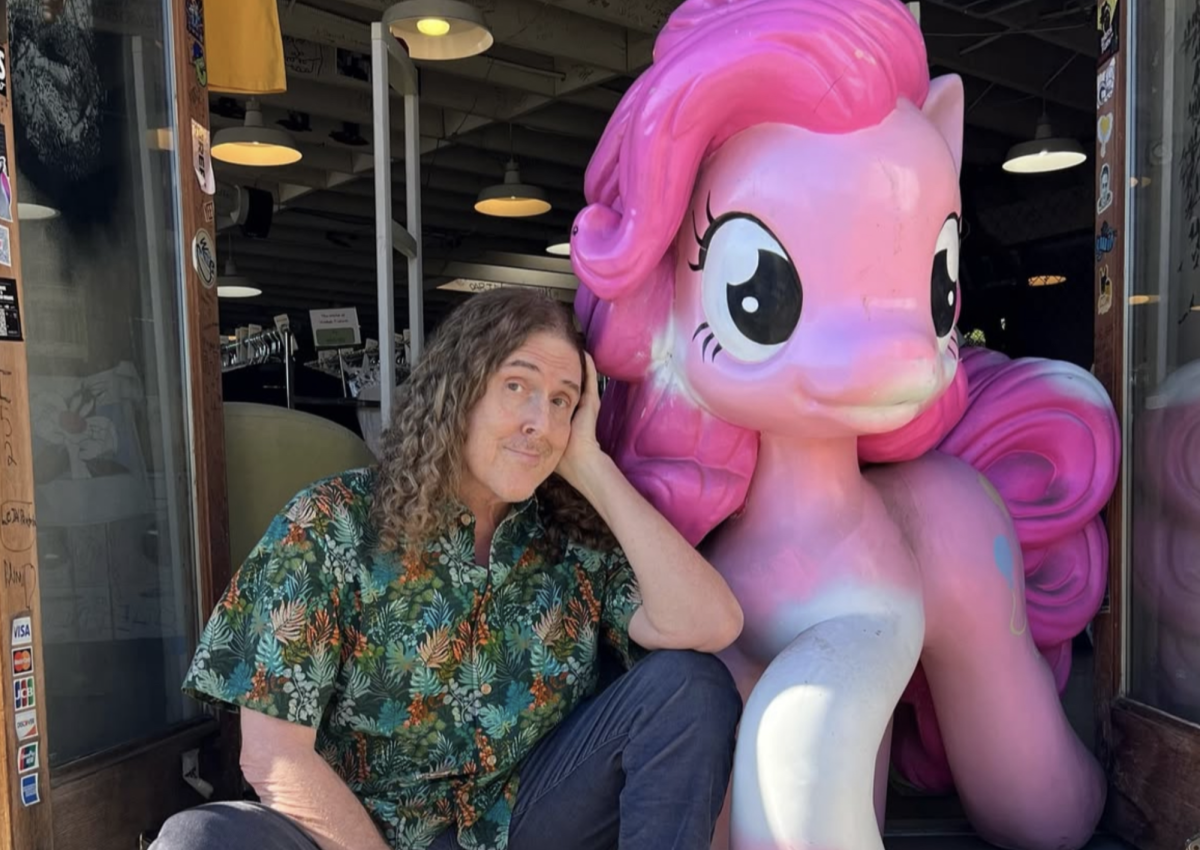
Taylor Swift has done it again.
A dance-pop album with some cringey lyrics. But we’ll all probably still listen.
Swift’s 12th album, “The Life of a Showgirl,” sparkles — though repetitive and renowned — in fun synths, yet dulls with mediocre songwriting. While the album is an energetic hit, any wins it has unfortunately do not defeat its drawbacks.
Made with producers Max Martin and Shellback, whom she collaborated with on pop-bible “1989,” Swift’s newest album explores what happened off-stage during her 152-stop Eras Tour. With multiple life developments to cover, including breakups with Joe Alwyn and The 1975 lead singer Matty Healy, as well as her current relationship with fiance Travis Kelce, the album sheds light on Swift’s experiences behind the scenes, but its recycled sound fails to illuminate her life as a forever showgirl.
To start with its strengths, several songs stand out. The first track, “The Fate of Ophelia,” is a dynamic song that tackles her relationship with Kelce. Lines “I heard you calling / On the megaphone / You wanna see me all alone” explicitly reference her relationship with Kelce and his choice to call her out on his podcast “New Heights.” This nod is fun for fans to follow as an explicit connection to their relationship. Coupled with the football in her music video, the song is clearly an expression of her romance — for long-time Swifties, it’s exciting to see her so loudly in love with someone. “The Fate of Ophelia” is also a dance hit — something Swift clearly had in mind when publicizing her vertical social media-style dance tutorials.
Another hit is the second track “Elizabeth Taylor,” which draws parallels between the famed Oscar-winning actress and Swift herself, each having experienced perilous tumultuous relationships with public life. This sentiment is clear in the song’s chorus, with the lyrics “I’d cry my eyes violet, Elizabeth Taylor / Tell me for real, do you think it’s forever?” and “Be my N.Y. whеn Hollywood hates me / You’re only as hot as your last hit, baby.” Swift’s lyricism outlines the personal heartache that can come with being ousted from Hollywood, film and music, something that both stars experienced in their careers.
“Elizabeth Taylor” takes on a personal fear reminiscent of her sixth album, “Reputation,” that emerged from Swift’s drama with the music industry. The choice to focus on her experiences at the margins of stardom makes this song more emotional than others on the album, and the emotion is only improved in the acoustic version released after the full album.
The most vulnerable songs on Swift’s albums have historically been track five — those that have nodded to her troubles with love include lyrical masterpieces “All Too Well,” “Dear John” and “So Long, London.”
So, when track five, “Eldest Daughter,” began, my expectation was a passionate, raw song exploring the immense responsibility Swift bore behind the scenes on the Eras Tour. This expectation went unmet.
“Eldest Daughter” is lyrically lacking. Overall, the song seems to reference what it feels like to be an outsider. The sentiment is relatable, but the lyrics aren’t. The chorus opens with lazy and unoriginal lyrics: “But I’m not a bad bitch / And this isn’t savage / But I’m never gonna let you down / I’m never gonna leave you out.” Where previous track fives were intimate, “Eldest Daughter” feels mainstream and meant for social media.
“Eldest Daughter” is not the only track with lyrics that sound like they were written for the wrong era. “CANCELLED!” also uses cringey, transient language instead of the timeless lyrics other songs employ. Specifically, “Did you girl-boss too close to the sun?” feels unoriginal and disconnected from her typical songwriting skill. More Swift-typical lyrics in the song include “Can’t you see my infamy loves company? / Now they’ve broken you like they’ve broken me / But a shattered glass is a lot more sharp.” But, even with these more poetic lyrics, I can’t get behind calling the album “poetry” when it relies so heavily on social media slang, like “girlboss” and “bad bitch.”
“Actually Romantic” feels like a failed diss track about Charli XCX’s comments in “Sympathy is a Knife,” which seems to reference Swift and their relationships with members of The 1975 — Charli XCX’s husband George Daniel and Swift’s ex-boyfriend Matty Healy. If Swift intended this to be a lyrical comeback, she failed by shallowly excluding the vulnerability that Charli XCX displayed in “Sympathy is a Knife.”
The album also features elements of various well-known songs that don’t represent Swift’s own style or history. “Father Figure” is a clear nod to George Michael’s 1987 song “Father Figure.” Though Swift credits him on the song — a respectful acknowledgement of Michael’s failed attempt to own his music — it does not feel like the original music fans were promised.
The beat of “CANCELLED!” resembles that of Lorde’s “Yellow Flicker Beat” — an interesting choice if Swift’s “Actually Romantic” is a diss toward Charli XCX. In “Wood,” the opening beats also sound like the Jackson 5’s 1969 hit “I Want You Back.” While all of these songs have strong beats, Swift’s echoing of hit songs contributes to the unoriginal feel of the entire album.
All of this to say, I’ll still listen and enjoy and even dance, but following her sensitive and heartache-inducing 11th album “The Tortured Poets Department,” “The Life of A Showgirl” lacks in lyricism, even if it does help Swift shine.









